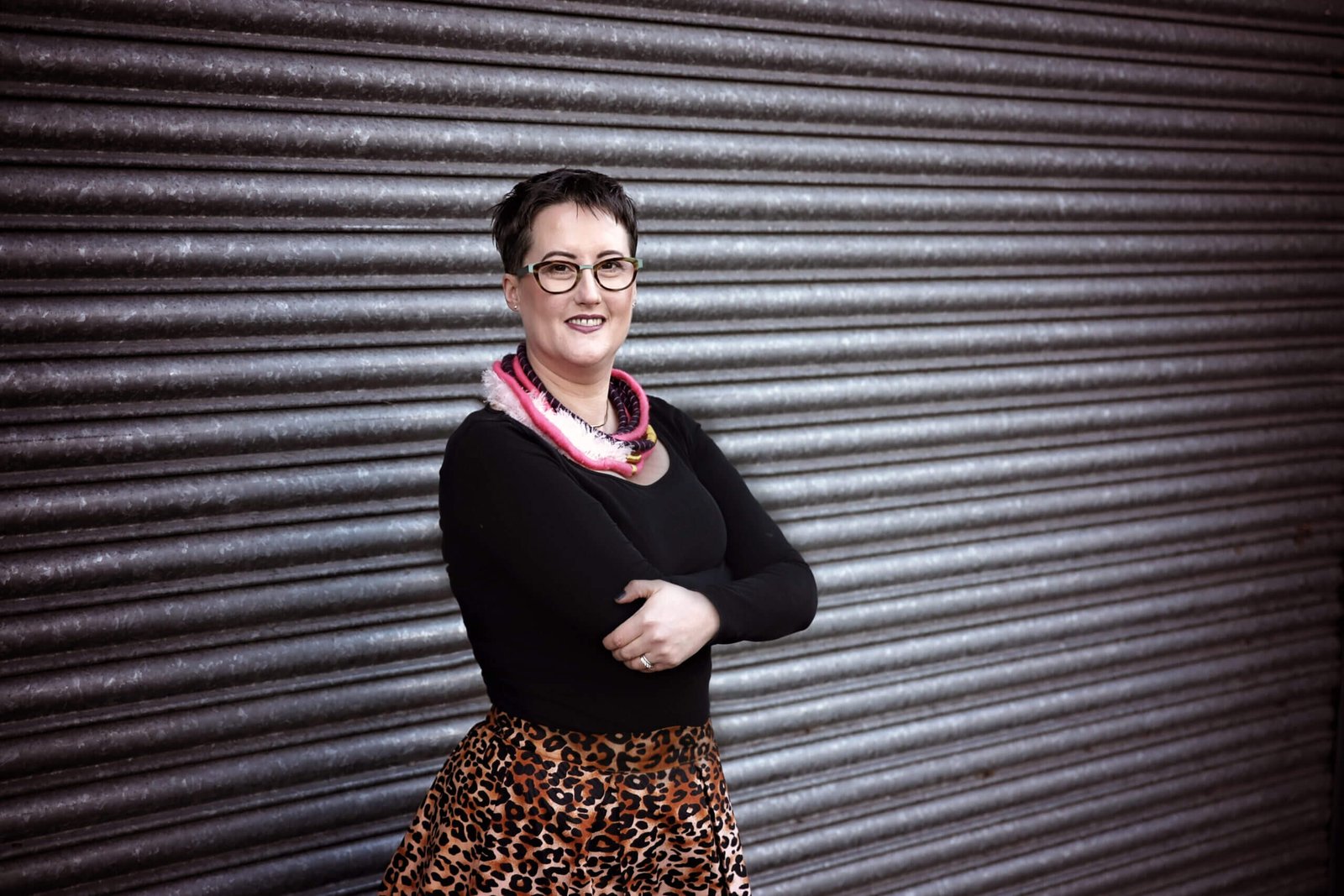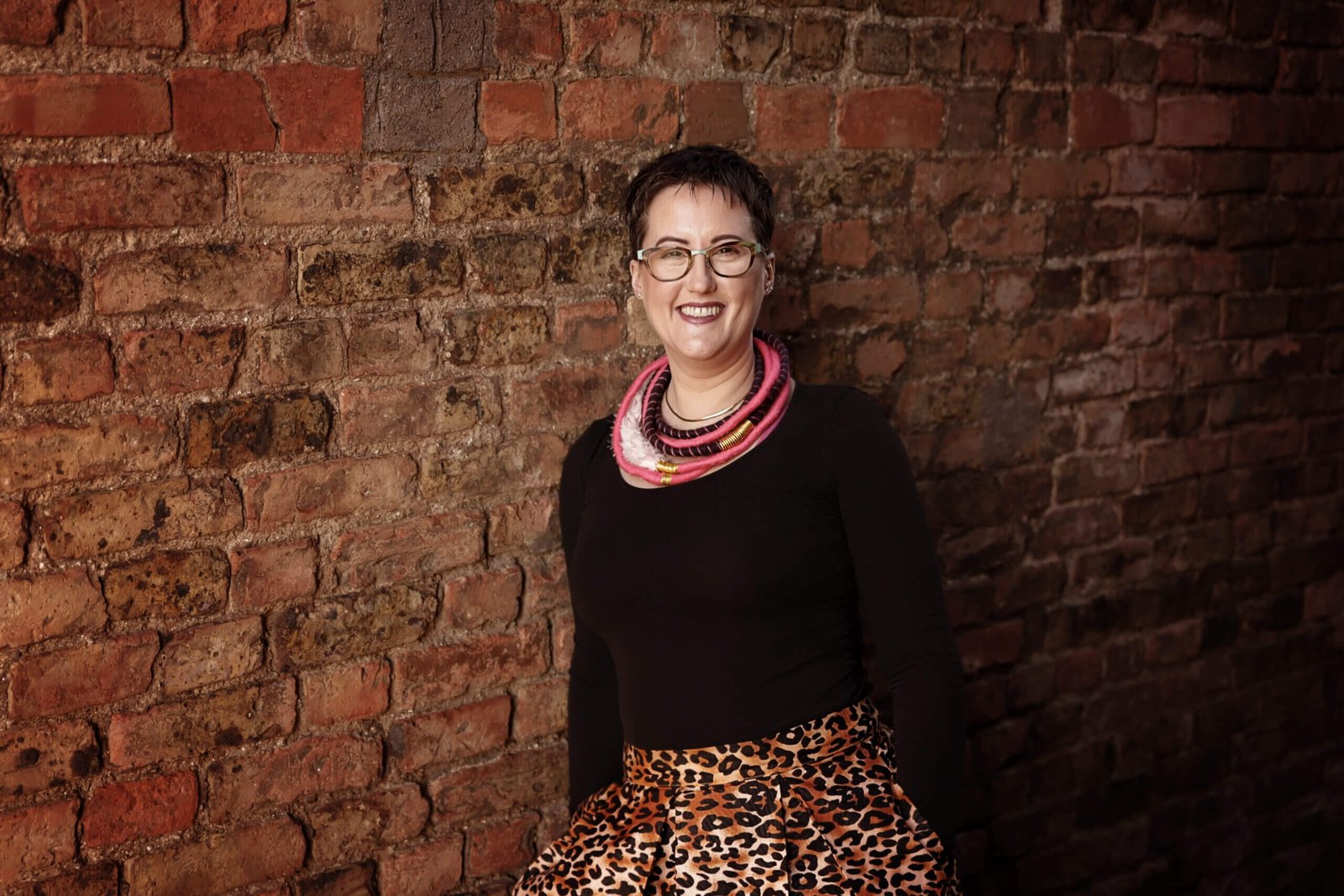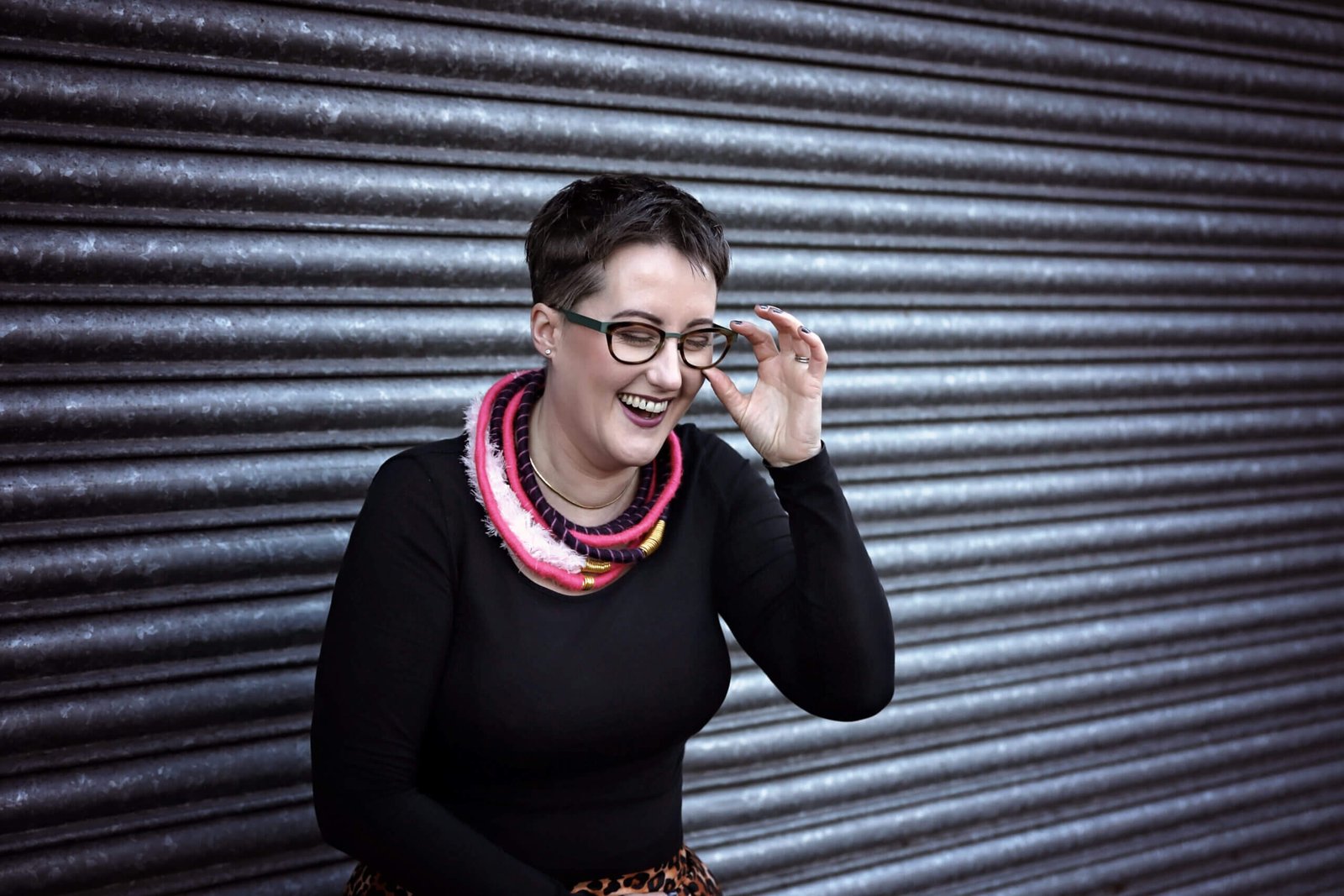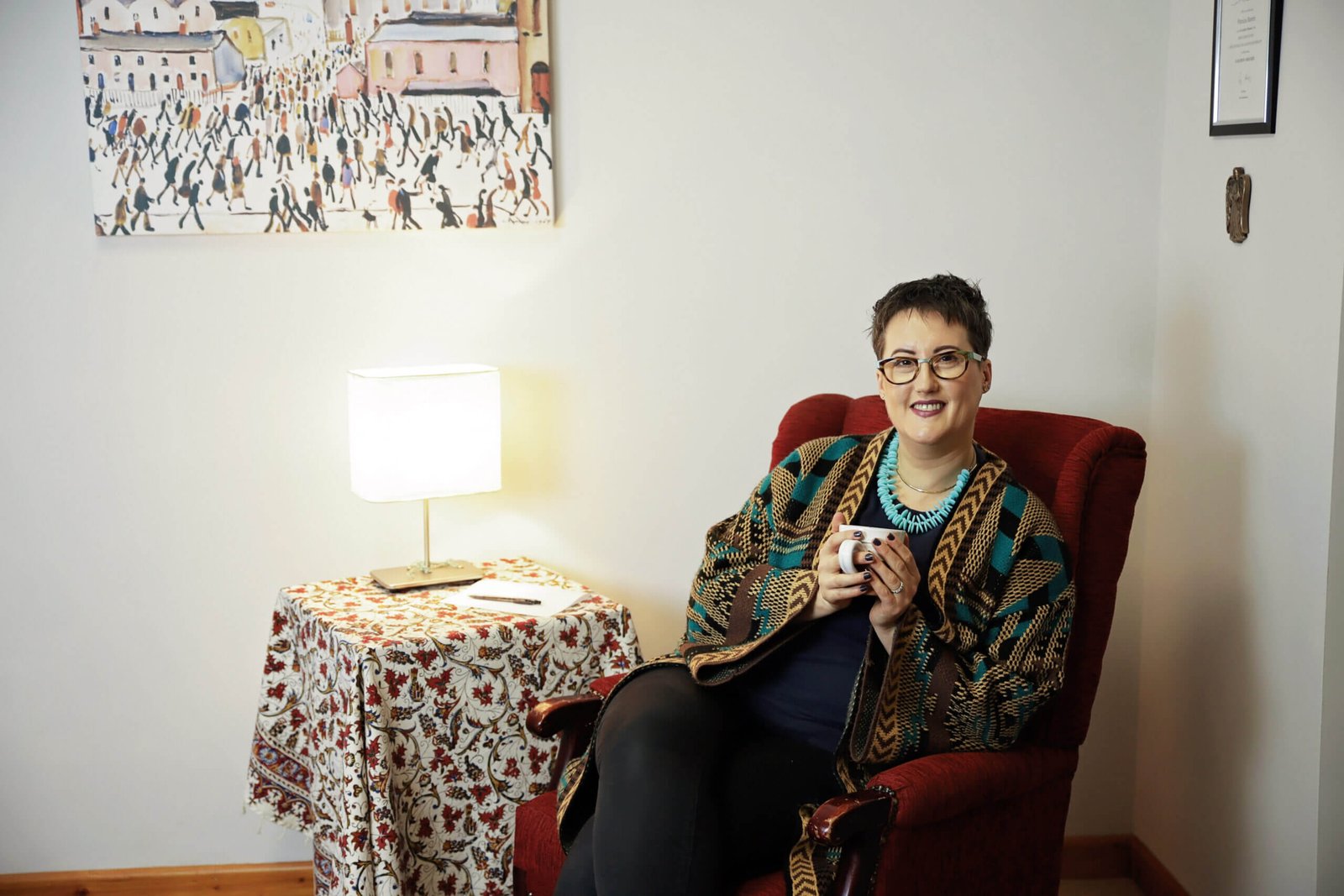
by Bethan O'Riordan | Jun 6, 2022 | Blog, Parenting
No one will ever be as hard on ourselves as ourselves. It’s bonkers when you think about it! It’s totally counterproductive to our happiness and ability to thrive. Having self critical thoughts is not a weakness as it is part of our inner defense and protective system.
Self-criticism is borne from two things:
- Life becomes overwhelming and you feel like you’re not coping.
- Your internal dialogue you learned as a child.
Everyone learns who they are and how to be in life based on their genetics and the environment they grew up in. This is the piece that people come to therapy to work through and re-structure. They aim to be thinking (and believing), their own thoughts about themselves rather than repeating the narrative that was imposed on them when they were young.
Many people give themselves a hard time. It’s much easier to show other people kindness, empathy and compassion than it is to receive it for yourself. Until you develop your skills for doing this.
Critical thinking patterns and thoughts become familiar and our brain automatically goes back to the familiar, rather than what’s helpful for us. The good news is that all is not lost! Our minds are moldable based on the messages going into it. Like any muscle, the brain can be nurtured and helped to thrive in a helpful way so that your default mode has your best interests at heart.
This takes practice and commitment. You don’t say how old you are, but I’m guessing mid-thirties, apologies if I’ve aged you! You’re trying to change 30-ish years of a pattern established in the brain. The joy of therapy is that we put practical steps in place to create new patterns, new systems that support you to be the person that you want to be.
This takes place by bringing understanding and curiosity to the self-critical part and re-learning that coping with life happens best when we can bring gentle strength and compassion, rather than criticism and punishment. The self-critical voice tries to keep us at arms length from truly enjoying life and celebrating who we are as it’s part of our self-protection mechanism.
It’s okay to let these thoughts go and then start to bring in a new, much more helpful inner voice that will support you regardless of what you do and say. This is your compassionate inner ally.
If anything in this blog resonates with you and you’d like support to create change, you’re welcome to book a free call with Bethan here to explore your support options. Make sure you download your free 5 Steps to Calmer Parenting. If you’re looking for immediate parenting support, you can start your free 7 day trial in the Calm Parenting Club where you’ll find the answers to your parenting problems and be supported to become the parent and person’ you’d like to be.

by Bethan O'Riordan | May 30, 2022 | Blog, Parenting
I am sorry that this is your experience of being a Mum. I’d love to know more about why you think this. You might be able to understand this better yourself by asking yourself these questions.
- Who are you comparing yourself to?
- Is it the practical elements of family life or the emotional development of your child that concerns you?
- What is it about your behaviour and or thoughts that lets you know that you are terrible?
I know that answering these won’t feel great, but in order to shift what doesn’t feel good, we have to understand it.
My guess is that there’s a whole narrative in your mind about you not being good enough. Unfortunately we are dealt with a predisposition to parenting in a certain way based on our unwittingly inherited parenting default mode and perhaps this doesn’t fit with who you’d like to be.
Perhaps there are parts of your parenting that would be more helpful if they changed. But I want you to know this; if you are being the parent you don’t want to be, it’s because you are overwhelmed. If a friend called you and shared the same experiences with you as you are having, what would you say to them? I can imagine you’d be kind, supportive, gentle and offer practical support.
If so, this is what you need to create for yourself. I know that our brains aren’t wired to tell us nice things when we are sinking. But this is what you need.
Is there a friend you can turn to? Can you pay someone to mind the kids and get a break? Can you seek the emotional and practical support to create the changes you’d like to establish within your life?
There is no greater initiation in life than that of motherhood. Those little people in front of you mirroring back to you all the parts of yourself that you find the hardest. I want you to know that you are not alone and every parent feels and experiences this. But remember that your child doesn’t need you to be perfect, just connected to what’s going on for you and able to share delight with your child in their life.
If anything in this blog resonates with you and you’d like support to create change, you’re welcome to book a free call with Bethan here to explore your support options. Make sure you download your free 5 Steps to Calmer Parenting. If you’re looking for immediate parenting support, you can start your free 7 day trial in the Calm Parenting Club where you’ll find the answers to your parenting problems and be supported to become the parent and person’ you’d like to be.

by Bethan O'Riordan | May 23, 2022 | Blog, Parenting
I know from meeting parents that having a child who is self-harming or suicidal is the most frightening part of parenting any parent will ever face. I want readers to know that change is possible for you, the child and your relationship.
No parent can ever say that their child won’t self-harm or suffer with suicidal thoughts as we are all predispositioned to dark thoughts in our minds. It is essential that you and your child get help.
Self-harm takes many forms, some more obvious and some more hidden. I’d like to start by exploring this so that all parents know what behaviours to keep an eye out for. Self-harm can be (but not limited to) over or under eating, cutting, picking, hair pulling, scratching or banging body parts.
Here’s some practical advice first: make sure your child has clean equipment that they are harming with. Reduce the chance of infection where you can.
Now let’s move on to the emotional advice. Your child and you both need separate therapy and your child may need to attend their GP. Parents need to be guided step-by-step in how to support their child by understanding what to say, what to do and how to help. I am a former therapist at Pieta House,the family therapy support was as essential as the child’s therapy.
Your child needs to learn how to feel emotions so that they are safe, and parents need to learn how to make their emotions safe. Don’t ask your child not to harm, this may make the behaviour go underground. If a child has reached the stage in their lives that they are harming it could suggest that they have moved past the point of talking with their parents; but it is possible to repair this relationship breakdown.
The most important thing a parent can do is take a step back from their family unit and observe what stress the child is absorbing. Is there something within the family, school or friendship dynamic that your child cannot tolerate? Your child may not have words for this so be their detective.
From my experience supporting parents, this is the hardest thing to do. If parents could see the relationship difficulties a child was experiencing then they would be resolved. This is why I urge parents to seek outside support for honest and constructive help in moving yourself and your child through this difficult time.
Within the home your child needs compassionate boundaries. Rules that are not authoritative but ones that support your child and keep them safe. Do not punish your child for self-harming. I’ve met many parents who remove their child’s phone from them when they self-harm. Guides can be put in place to help your child manage their phone use as it certainly does have an impact on their mental health, but cutting your child off from their peers may not be the answer.
Remember that this is your child’s cry for help. They are telling you in no uncertain terms that they are not okay. For healing to take place it’s not only the child’s responsibility to change. When parents change how they support their child an emotional container is created so that self-harm isn’t the safe place for the child, instead you are.
If you are reading this and your children are young and perhaps pickers or nail biters, try to create dialogue around it using empathy. Don’t be blunt and ask why you are picking, take the shame away from it by noticing it “oh, you’ve a cut there,” let me have a look (gently hold around the area), then help “oh, I’ve some cream that we can put on”. And soothe the feelings you see in the picking or cutting with acceptance from yourself.
Teenage self harming is often a response to early childhood experiences. When a parent develops their skills for seeing and validating their children when they are young, it helps so much in the relationship when they are older.
I remember as a young child biting my nails and being punished with horrible tasting polish. What I needed was someone to see my life and the stress I was unable to absorb and take it away. You have that opportunity as a parent to be the detective, take the responsibility of managing that stress and helping your child move through this time in their life.
If anything in this blog resonates with you and you’d like support to create change, you’re welcome to book a free call with Bethan here to explore your support options. Make sure you download your free 5 Steps to Calmer Parenting. If you’re looking for immediate parenting support, you can start your free 7 day trial in the Calm Parenting Club where you’ll find the answers to your parenting problems and be supported to become the parent and person’ you’d like to be.

by Bethan O'Riordan | May 16, 2022 | Blog, Parenting
Being triggered is a difficult feeling. It’s an out of control sensation that has a domino effect of causing; over-thinking, shame, guilt, critical thinking… I could go on. Being triggered by other parents is normal. I’m imagining Motherland (BBC and Netflix) and chuckling at the accuracy of the portrayal of the characters.
Triggers come from comparison and can leave parents asking themselves, “am I doing the right thing?”. Parents do like to talk about their children’s achievement, after school activities, school grades, amount of friends, basically anything really that helps people gauge how they are doing.
People like to create security by seeking external validation. There is no greater threat to humans than being excluded.. I read recently that isolation is a key indicator for Alzheimer’s, so we cannot underestimate how significant the threat of not being ‘in’ is.
We have really complex human minds, with a tribal brain and a predisposition towards the threat other mums can be triggering. There really is nothing that holds more importance than your child’s wellbeing so it is huge when others are voicing their lives and you’re left wondering about your own.
I honestly can’t understand how all parents don’t need some level of consistent emotional support from outside the family. There’s so much at play!
What I strongly encourage all parents to do is to create your values within your unit. Create your boundaries and be okay with how you’re raising your family.e. Your children need parents who are confident in their decisions and the way their children are growing up. If you’re operating from a place of fear or wondering if you’re doing the right thing then your children will absorb this too.
On a practical level, consider who you’re associating with. If your inner world is being stirred, distance yourself from the people you’re triggered by. Take the time to be proud of yourself and the way your unit is developing. By doing this, others’ comments won’t impact you so much. Yes, that tribal brain may come on board, but when you create security within yourself you can come back to this inner foundation to support you. This is also a wonderful gift to pass on to your children.
If anything in this blog resonates with you and you’d like support to create change, you’re welcome to book a free call with Bethan here to explore your support options. Make sure you download your free 5 Steps to Calmer Parenting. If you’re looking for immediate parenting support, you can start your free 7 day trial in the Calm Parenting Club where you’ll find the answers to your parenting problems and be supported to become the parent and person’ you’d like to be.

by Bethan O'Riordan | May 9, 2022 | Blog, Parenting
I’m seeing a significant increase in parents waiting for a CAMHS assessment for their child. My opinion is that lock downs have been hard for many families and now the toll is beginning to show.
The wait for the CAMHS appointment can be long, especially if your child’s behaviours and emotions are getting progressively worse. What I am seeing is that the lockdowns have shone a light on a child’s inner world; isolation is the number one indicator for mental health. As humans we are a social species and need to be in a tribe to survive. When this connection is removed all sorts of tricky things happen in the mind.
If your child is struggling with their emotions, your child needs you to do these three things:
- Have clear boundaries that you stick to, but that also be flexible when needed.
- Create an environment which is open to listening, validating, calm, consistent, compassionate and not shaming.
- Reflect on your behaviour and how you respond to your child.
What I tell every parent when I meet them is that a child’s greatest therapist will always be their parent. I know that the professional assistance of a CAMHS therapist is helpful in supporting a child but my experience is that every parent can develop, or enhance their skills in helping their children.
When anyone goes to therapy, the primary role of the therapist is to have an unconditional positive regard for their children. By this I mean a therapist will always hold the child in the highest of regard, listen to them, validate them, accept them and offer help.
I believe that with the correct guidance, every parent can also offer this unconditional emotional safety for their child too. I know it’s not easy and can be tiring and overwhelming, but the value of the parent re-parenting themselves and upskilling in this way holds untold benefits in creating a healthy relationship between them and their child.
It’s so helpful when a parent takes on this responsibility as it also means that when your child ends therapy, the emotional environment is supportive for them to continue to thrive. We want the alliance to be strong between child and parent, not only parent and therapist.
So in answer to the reader’s question, “what can I do?”, you can begin by working out what do you find difficult about your child’s behaviours or emotions? Where are you stuck? And what do you need to change to be supportive to your child and yourself? Above all, I urge you to reflect on how you can upskill and be the solution to your child’s problems.
If anything in this blog resonates with you and you’d like support to create change, you’re welcome to book a free call with Bethan here to explore your support options. Make sure you download your free 5 Steps to Calmer Parenting. If you’re looking for immediate parenting support, you can start your free 7 day trial in the Calm Parenting Club where you’ll find the answers to your parenting problems and be supported to become the parent and person’ you’d like to be.

by Bethan O'Riordan | May 3, 2022 | Blog, Parenting
The place to start for answering this reader’s question is to explore what confidence is. Confidence comes from celebrating the wins with your child, but it really blossoms when you show your child understanding and acceptance when things are hard for your child.
Being confident doesn’t mean that you, or your child, doesn’t have big emotions. Being confident doesn’t mean you power your way through life. We all have emotions as part of our response to new situations. Feeling and expressing these doesn’t mean that anyone isn’t confident.
What I am thinking about are situations where children are shy, overwhelmed, anxious, upset, nervous or angry. These emotions are an inherent part of being human and confidence comes when you know how to handle them so that they don’t consistently run the show. We all get overwhelmed at times and parents need only be concerned if difficulties become a consistent pattern within a child’s life.
The most helpful way that you can help a child be confident comes from how you support them when they are finding life hard. We know when a child is finding life hard when they cry, feel guilty, be angry, shout, hit, throw, punch, bite, be shy, anxious or overwhelmed. It’s in these moments that parents have golden moments to help these big feelings be safe and this creates the internal foundations for confidence to thrive. When big emotions are safe children move forwards with their lives with confidence.
I see it so many times that parents miss these moments. For example, if a child knocks something they say “oh, again, clumsy”, instead of “here, let me help you with that”. Or at the side of a pitch parents comment about what their child missed or didn’t do. What I am trying to say is that so often parents unwittingly create shame around children’s behaviours and emotions by passing comments. This is the number 1 cause of chipping away at a child’s confidence.
If you fall into this rabbit hole I want you to know that you are not alone. But I cannot emphasise enough how important it is that you bring awareness to your actions and words. You are the adult and it is your responsibility to help your child develop a sense of who they are without shame.
If you’re unsure if this applies to you simply reflect on your behaviours over the next few days.. Children need to know that when they’ve made an error and internally feel unsafe or guilty that they can come to you for safety. If you are not that safe person to turn to then your child will not create the inner confidence they need to thrive in life.
Also, don’t collude with other parents if they’re taking about the things their kids do wrong. Maintain the integrity of your child and their developing emotions within the safety of their relationship with you. Confidence is born from a child’s relationship with their parents and this is massively undermined if you cannot accept who they are.
If anything in this blog resonates with you and you’d like support to create change, you’re welcome to book a free call with Bethan here to explore your support options. Make sure you download your free 5 Steps to Calmer Parenting. If you’re looking for immediate parenting support, you can start your free 7 day trial in the Calm Parenting Club where you’ll find the answers to your parenting problems and be supported to become the parent and person’ you’d like to be.





